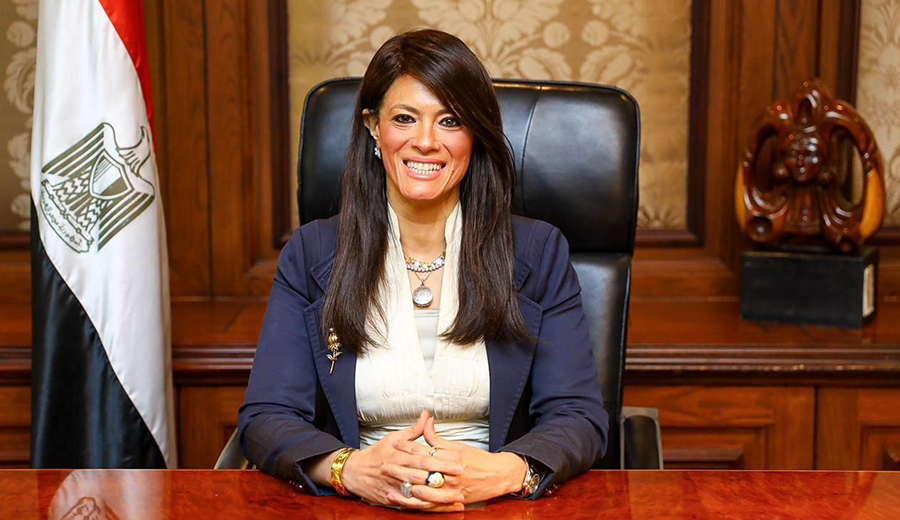Al-Mashat Inaugurates the Subcommittee Meeting on Transport, Environment, and Energy as part of the Strategic Partnership with the European Union.

16 January 2025
H.E. Dr. Rania A. Al-Mashat, Minister of Planning, Economic Development, and International Cooperation, inaugurated the ninth meeting of the Subcommittee on Transport, Environment, and Energy between Egypt and the European Union, chaired by the Ministry of Planning, Economic Development, and International Cooperation, within the framework of the strategic partnership between the two sides.
The meeting was
attended by representatives from the Ministries of Foreign Affairs, Immigration
and Egyptian Expatriates Affairs, Electricity and Renewable Energy, Petroleum
and Mineral Resources, Water Resources and Irrigation, Environment, Transport,
Civil Aviation, Industry, the Suez Canal Authority, as well as representatives
from the European Commission, the European Union in Egypt, the European
Investment Bank, the European Bank for Reconstruction and Development, the
French Development Agency, and representatives from Spain, Germany, Croatia,
the Czech Republic, Denmark, Finland, Greece, Hungary, Romania, Latvia, and the
Netherlands.
In H.E.’s opening
speech, Dr. Rania Al-Mashat, Minister of Planning, Economic Development, and
International Cooperation, stated that the meeting of this committee reflects
the ministry's role in advancing and enhancing economic cooperation with the
European side, in light of the strategic partnership between the two parties.
H.E. Dr. Al-Mashat
noted that the committee deals with key areas that are at the forefront of the
partnership's priorities, including food security, water security, green
hydrogen, and cooperation in the fields of transport, petroleum, and the
environment. She also highlighted that since the eighth meeting held in
Brussels in March 2023, significant progress has been made in the partnership
towards achieving sustainable development.
H.E. Minister
Al-Mashat also referred to the continuous and positive development of
Egyptian-European relations, reflecting the mutual keenness to advance these
relations across various levels, especially in investment, trade, and economic
cooperation.
H.E. Dr. Al-Mashat
clarified that the ministry works in coordination with national entities to
advance these relations within the framework of the strategic partnership, as
well as the package announced worth 7.4 billion euros. In addition to,
partnerships with European countries and European financial institutions.
The meeting
reviewed the achievements since the eighth meeting of the Subcommittee on
Transport, Environment, and Energy, which was held in February 2023. The main
developments and projects implemented since then in the areas of transport,
environment, and energy were highlighted, with a focus on lessons learned to
enhance efficiency and achieve shared goals more effectively.
The meeting's
agenda included strategic fields aimed at deepening cooperation between the
concerned parties and strengthening integration in these vital sectors,
foremost of which is energy.
Discussions focused
on the state's efforts to expand clean energy production and implement the
national sustainable energy strategy. The cooperation in climate issues was
also discussed, highlighting the country's efforts to implement the National
Climate Change Strategy 2050.
Additionally, there
was a discussion on cooperation in environmental and irrigation issues, recent
developments in the infrastructure of the transport and port sectors, the
modernization of public transport networks, and cooperation in the maritime
transport sector.
The European side
presented its new energy policies, updates on the European Green Deal, supporting
legislative policies, and environmental initiatives being implemented within
the framework of bilateral and regional cooperation.
At the conclusion
of the meeting, both sides emphasized the importance of strengthening the
partnership between Egypt and the European Union in the discussed vital
sectors, continuing joint efforts to achieve sustainable development, and
setting priorities for the upcoming period.
They affirmed the
importance of enhancing coordination between all concerned parties, both at the
national and regional levels, to ensure the integration of efforts and maximize
the utilization of available resources.









